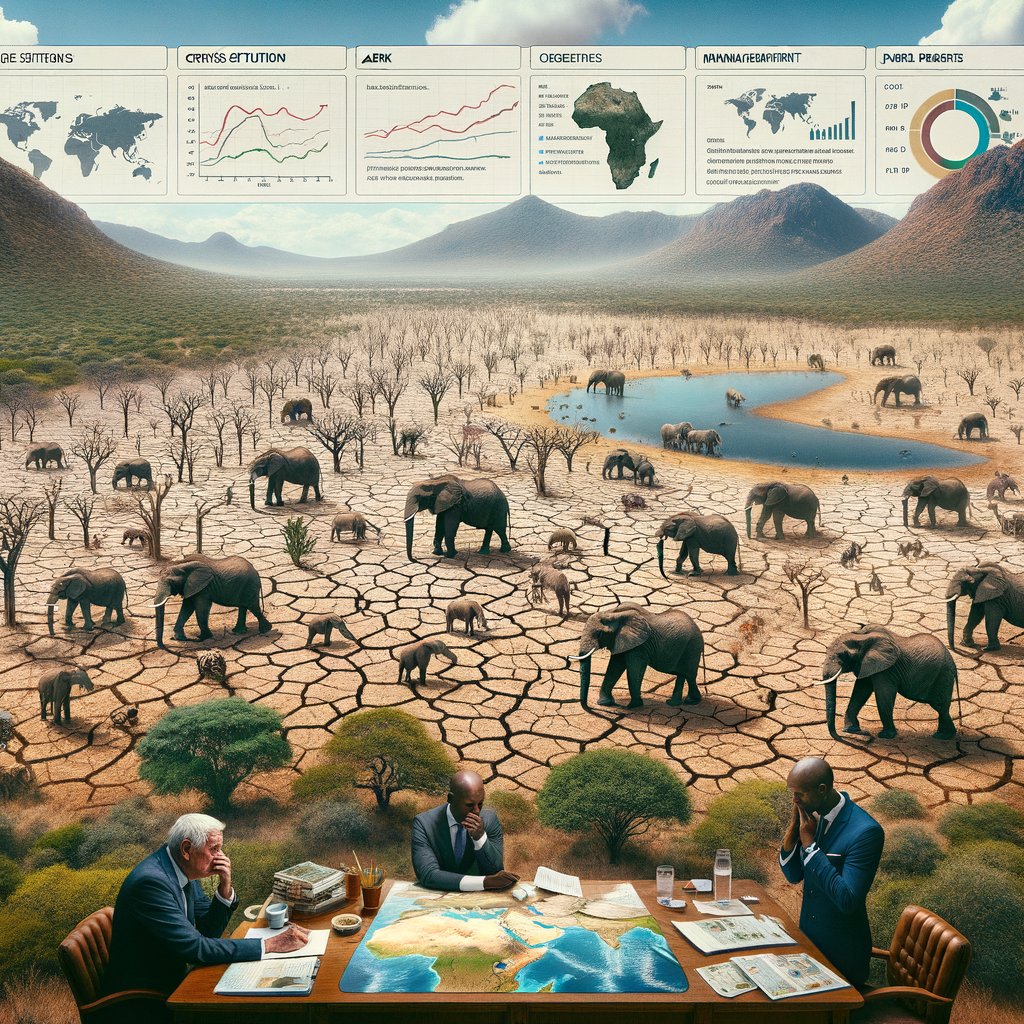Image created by AI
Crisis at Madikwe: Drought and Overpopulation Lead to Elephant Deaths and Call for Urgent Measures
The Madikwe Game Reserve, straddling the edge of South Africa and Botswana, has become the focal point of an emerging wildlife catastrophe, amplified by severe drought conditions and an unsustainable elephant population. Since August, the park has witnessed the distressing deaths of 80 elephants, prompting a critical evaluation of both immediate and long-term conservation strategies.
Pieter Nel, an ecologist with the North West Parks and Tourism Board, detailed the grim toll: starvation, exacerbated by inadequate grazing triggered by an elephant population boom. The reserve, which is home to an estimated 1,600 elephants, has seen natural food sources dwindle, forcing the park's hand towards potential euthanasia to prevent further suffering.
The situation is further complicated by strict protocols for detecting and deciding the fate of these giant mammals. Field guides and rangers are tasked with identifying individuals in poor condition, using a set criteria to determine their future. This action comes under the guidance of a special task team set up by the Minister of Forestry, Fisheries, and the Environment, focusing on alleviating the crisis both in Madikwe and the nearby Pilanesberg National Park.
In a distressing report, the National Council of SPCAs highlighted the reserve's crumbling ecosystem, contrasting the bleak interior with the lush vegetation beyond its fences. Douglas Wolhuter, a key figure at the NSPCA, criticized the reserve's management, labeling the situation as a man-made disaster that neglected overpopulation and vegetation needs for years.
Recent observations by NSPCA officials, including the euthanasia of a debilitated elephant calf, underscore the urgency of the situation. The reserve's management, however, faces harsh realities about biodiversity and ecosystem management, particularly the challenges posed by an overcrowded elephant population which detrimentally impacts other species and the broader ecological system.
Koos Potgieter, a leader at the Madikwe Futures Company, expressed profound concern over the negative portrayal of the reserve in the media, which could undermine decades of positive work and conservation efforts within the park. However, he also acknowledged the critical tipping point the reserve has reached, necessitating urgent and possibly radical decisions to restore ecological balance.
Aside from its ecological significance, Madikwe is a vital economic engine, sustaining over 1,000 local jobs and involving numerous community projects through partnerships like the Madikwe Futures Company which assists with anti-poaching efforts and habitat management.
The wider context of this crisis reflects a regional challenge, affecting reserves across Southern and East Africa, where balancing elephant populations with environmental sustainability has become a pivotal issue.
As Madikwe awaits more substantial rainfalls to hopefully replenish its ecosystems, the discussions and decisions made now will be crucial in shaping the future not only of Madikwe's elephants but also of the entire reserve's biodiversity. The dilemma of how to manage these majestic creatures while maintaining the health of the reserve underscores a complex conservation challenge that extends beyond a single park's boundaries.










